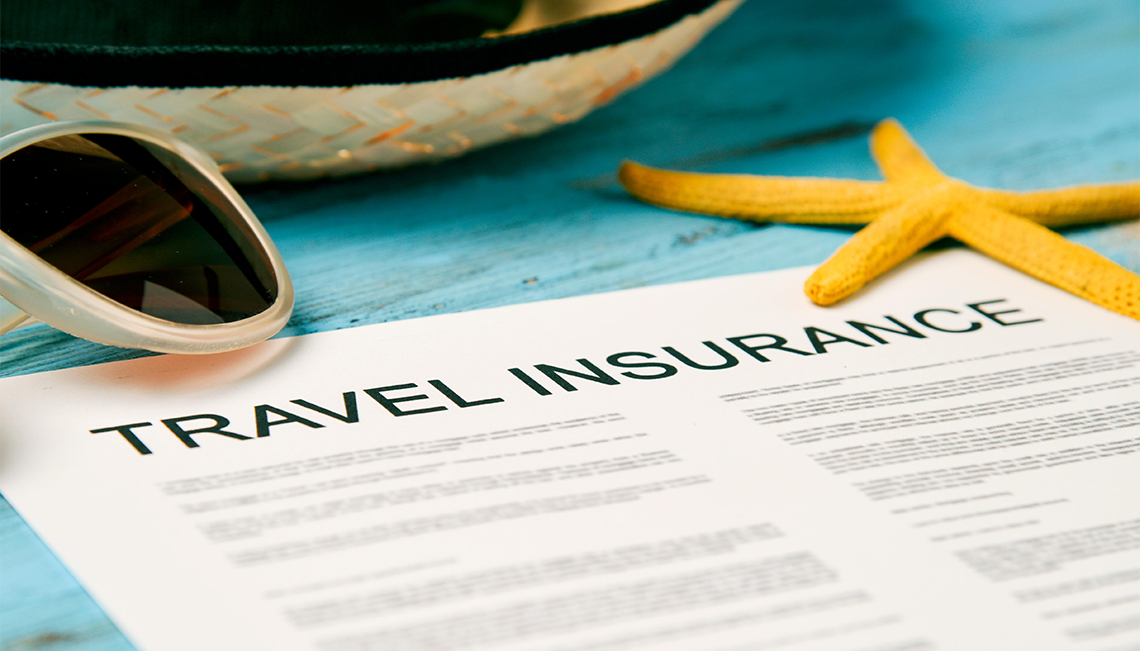
How to pick the right travel insurance
- Select a language for the TTS:
- UK English Female
- UK English Male
- US English Female
- US English Male
- Australian Female
- Australian Male
- Language selected: (auto detect) - EN
Play all audios:

Although this is not always the case, older travelers are more likely to have a preexisting medical condition. “Coverage for preexisting medical conditions can typically be included in a
travel insurance policy at no additional premium, as long as the policy is purchased shortly after booking the trip (typically 14 to 21 days post-booking),” says Megan Moncrief, president of
squaremouth.com, an online travel-insurance comparison site. “If an older traveler is concerned about an existing condition, they should purchase the policy as soon as possible upon booking
a trip.” If COVID-19 taught travelers anything, it’s that flights or entire trips can be canceled without notice. Although the airlines reimbursed travelers during COVID, there’s no
guarantee they’ll do so today. Moncrief says to take that into consideration when considering travel insurance. “While the COVID-19 pandemic highlighted the benefits — and in some cases,
requirements — to travel with insurance, several of the benefits included within most plans are perhaps even more relevant today.” IF MY WIDOWED MOTHER HAS A MEDICAL EMERGENCY WHILE I’M
TRAVELING, AM I COVERED IF I DROP EVERYTHING AND HEAD HOME? An event that causes your trip to be cut short falls under trip interruption coverage. One common scenario Moncrief cites: the
serious illness or unexpected death of a close relative such as a mother, brother or child. To make a claim in this situation, you’ll need a doctor’s note to get reimbursed. And your
relative has to have been medically fit at the time you bought the insurance (which, again, you must buy on a timely basis). I’D LIKE TO GO ON A CARIBBEAN CRUISE THIS FALL. WHAT IF IT’S
CANCELED BECAUSE OF A HURRICANE? OR WHAT IF MY FLIGHT TO MIAMI IS DELAYED AND I MISS THE BOAT? A cruise called off as a hurricane barrels toward Florida would indeed be covered by trip
cancellation insurance, assuming you bought it before the hurricane was forecast. Some policies provide “cruise only” missed connection coverage that will pay for flying you to the next
destination port if you miss the boat because of flight delays. Check a policy’s wording carefully: You might not be covered for a delayed flight if your plane’s scheduled arrival falls too
close to your ship’s departure. If a cruise is rerouted, not canceled, to avoid a storm, you probably won’t get any reimbursement. Some plans may let you cancel if your destination is
subject to a hurricane warning close to your departure date. MORE BUYING TIPS COMPARISON SHOP … Cruise lines, group trip operators and airlines all offer add-on trip insurance when you buy
your tickets. But it typically isn’t a good deal, says Robert Hunter, who suggests contacting insurers directly for details on prices and coverage. … BUT DON’T DAWDLE. There are numerous
insurance benefits that are available only if you buy coverage shortly after you make your first trip payment — including any nonrefundable deposits. As you make additional nonrefundable
payments, you can usually increase the amount of your coverage. KNOW YOUR NEEDS … Insurable trip cost is not the same as total trip cost. Prepaid, nonrefundable costs are typically covered,
as are expenses that you will be billed for if you cancel your trip. Tickets purchased with frequent-flier miles aren’t covered, though taxes and related fees might be. … BUT DON’T OVERBUY.
Are you taking a cheap flight to Chile and staying with friends? Instead of paying for a comprehensive policy that includes cancellation and interruption coverage, you can probably pay less
for a policy that covers medical issues only. For lost luggage, you may have sufficient coverage on your homeowners policy or the credit card you use to book your trip. WHAT IF I’M WORRIED
ABOUT ALL OF THE ABOVE, PLUS PICKPOCKETS? Comprehensive travel insurance policies are designed to cover a wide range of risks, from trip cancellation and interruption to travel delay,
baggage protection, medical issues, emergency evacuation and 24-hour assistance. Some policies will even reimburse you a set amount toward the cost of a new passport. A standard
comprehensive policy can add 4 to 10 percent to the cost of your trip. _Editor's note: This article was originally published on April 9, 2019. It has been updated to reflect new
information._
